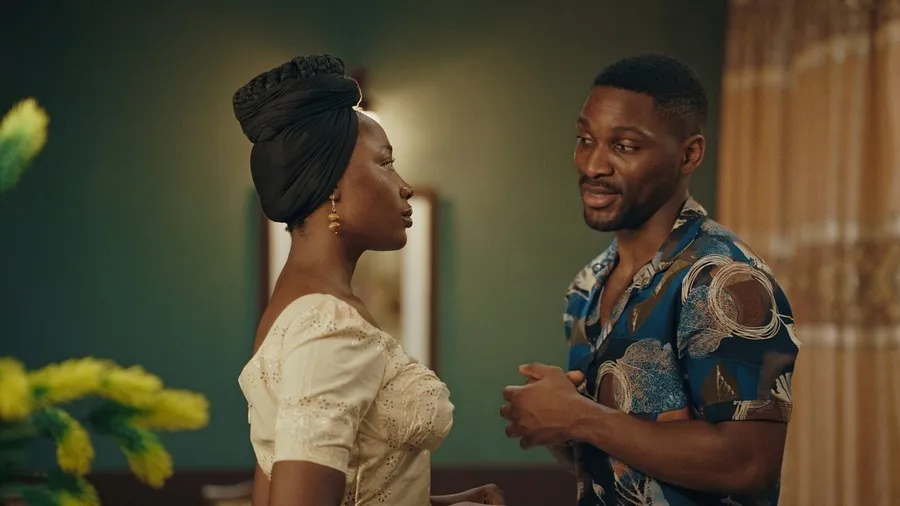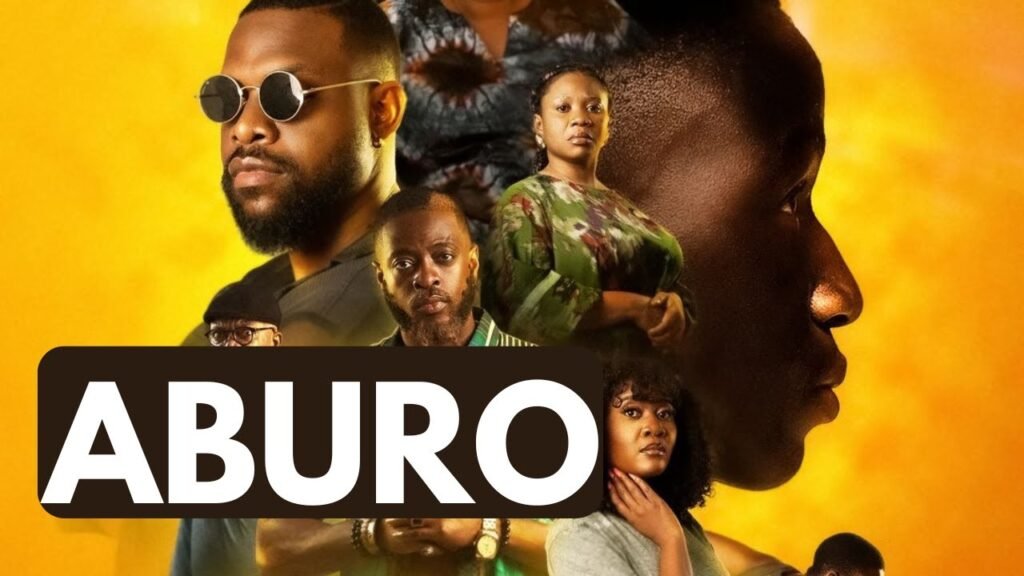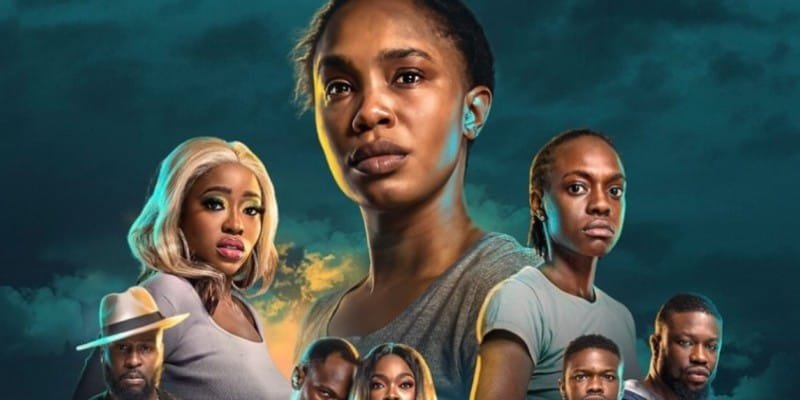In a small town lived Funmi, a young girl with big dreams and a bright future ahead. But those dreams were cut short when she was forced to marry a man old enough to be her father. And no, this isn’t one of those “enemies-to-lovers” fairytales. This is a story drenched in passion, betrayal, and yes… even death.
Farmer’s Bride, directed by Adebayo Tijani and Jack’enneth Opukeme, first hit cinemas last year and has now found its way to Netflix. It’s the kind of movie you settle down to watch on a lazy Saturday after finishing your chores, simple, heartfelt, and packed with drama. Now, let’s dive into the plot.
Plot
Funmi was a beautiful young girl with big dreams. She wanted to go to school, build a career, and become a successful woman. But her parents had other plans. The movie opens with her wedding to Odun, a man old enough to be her father. Why the rush? Simple. Odun had showered her parents with gifts and land. To them, marrying off their daughter to him was a profitable deal.
Odun, on the other hand, was a beloved figure in the town, a successful farmer everyone respected. His workers adored him, and his reputation glowed brighter than his farm fields. But behind that perfect image lay a web of emotions waiting to unravel.
The morning after the wedding, we meet Morenike, Odun’s sister-in-law, the widow of his late brother. Morenike was also a widowed priestess and traditional healer. She shared a strange, unspoken bond with Odun, one that gave her access to his home and life, something that made Funmi uneasy from the start.
Then came the knock that changed everything. Enter Femi, Morenike’s son. Young, handsome, and charming, he immediately caught Funmi’s attention. During dinner, he casually dropped a bombshell that he wasn’t going back to school because formal education wasn’t for him. His mother wasn’t thrilled, but Femi was his own man. He also had a girlfriend, Banke, a small-town girl with big-city dreams of becoming a model, dreams that soon came true.
Meanwhile, Funmi’s marriage to Odun was cold. Though he was kind, she couldn’t bring herself to love him. Her chemistry with Femi, however, was undeniable. One stolen kiss turned into a full-blown affair. Before long, they were deeply entangled, emotionally and physically.
Then the town’s darker side shows itself: Funmi witnesses one of Morenike’s rites, a brutal traditional “paternity test.” In the ritual, they place an infant at the riverbank; if the water returns the baby, the child is deemed legitimate; if the baby is taken by the water and not returned, the child is branded a bastard, and the mother is punished by being burned alive. Seeing that rite, the town’s cruelty dressed as tradition, squirms in Funmi’s bones and foreshadows how dangerous secrets and superstition can be.
But soon, things took a darker turn. Funmi became pregnant, and since she hadn’t been intimate with Odun, it was clear who the father was. Desperate to hide the truth, Funmi and Femi made a chilling decision: Odun had to go. Femi stole one of Morenike’s potions, and Funmi used it to poison her husband. Odun died quietly, leaving the town in mourning.

At the burial, Morenike’s suspicions grew. Funmi, playing mind games, hinted that people probably blamed Morenike for her own husband’s death, knowing full well that Morenike once secretly loved Odun. When the elders met, they handed Odun’s wealth and home to Femi and asked if he wanted the wife too. Without hesitation, Femi said yes.
Life moved on, or so they thought. Until another knock came. Banke was back, now a magazine cover star, flaunting her success and instantly stealing back Femi’s attention. Soon, the affair reignited, this time right in Funmi’s face. Femi began taunting her, calling her a failure and a murderer. Then strange things started happening; Odun’s spirit was back for revenge.
Desperate, Funmi sought help from a herbalist, planning to use a love potion to get Femi back. But fate intervened when Banke overheard her confessing to Odun’s murder. In a panic, Funmi killed Banke on the spot, a point of no return.
By now, Femi was done. He knew too much, and Funmi knew she couldn’t keep him. As things spiralled, she decided if she couldn’t have him, no one would. What followed was a tragic, violent showdown as Femi was not going down without a fight, and definitely, not alone.
Cast
The cast ensemble in Farmer’s Bride was small, but it never felt that way. Every actor brought something solid to the table. It was refreshing to see Gbubemi Ejeye step into a lead role; she carried it beautifully. Tobi Bakre, on the other hand, was a complete delight to watch. His emotional range, especially in the scene where he wrestles with guilt after “guzzling down his poison,” was powerful and raw.

The on-screen chemistry between him and Gbubemi was electric, passionate, believable, and surprisingly rare in many Nollywood dramas today. Mercy Aigbe, as always, delivered her role as Morenike with grace and elegance, while Femi Branch gave a steady, convincing performance. And let’s not forget Efe Irele as Banke, effortlessly confident and perfectly cast.
Language
Farmer’s Bride was rich in Yoruba culture, from the language to the setting and even the characters’ expressions, it beautifully captured the essence of traditional life. The movie also struck a decent balance between Yoruba and English dialogue. However, the English could have been toned down a bit, considering the era the story was set in. A more limited use of English by some of the cast would’ve made the cultural and historical setting feel even more authentic.
Final take
Farmer’s Bride definitely scored high on its setting; it was visually beautiful, with impressive picture quality that did justice to its rural charm. The costumes were spot on, from the adire fabrics to the traditional hairstyles; everything just clicked. The sound production was solid, and the soundtrack clearly understood the assignment.
The movie’s premise had plenty of promise, until it didn’t. It was one of those stories bursting with potential but somehow missing the mark. For instance, Morenike’s mother, speaking flawless English despite having no formal education, felt oddly misplaced and inconsistent with the setting. But the biggest letdown came with the ending. What exactly was the point of hinting that Odun was reincarnated? His random appearances and disappearances felt more confusing than mysterious. And Banke’s return seemed like a forced plot device just to justify Femi’s loss of interest in Funmi.
The film started strong, sweet even, but somewhere in the middle, it turned salty, and by the end, it left a bitter aftertaste.

















